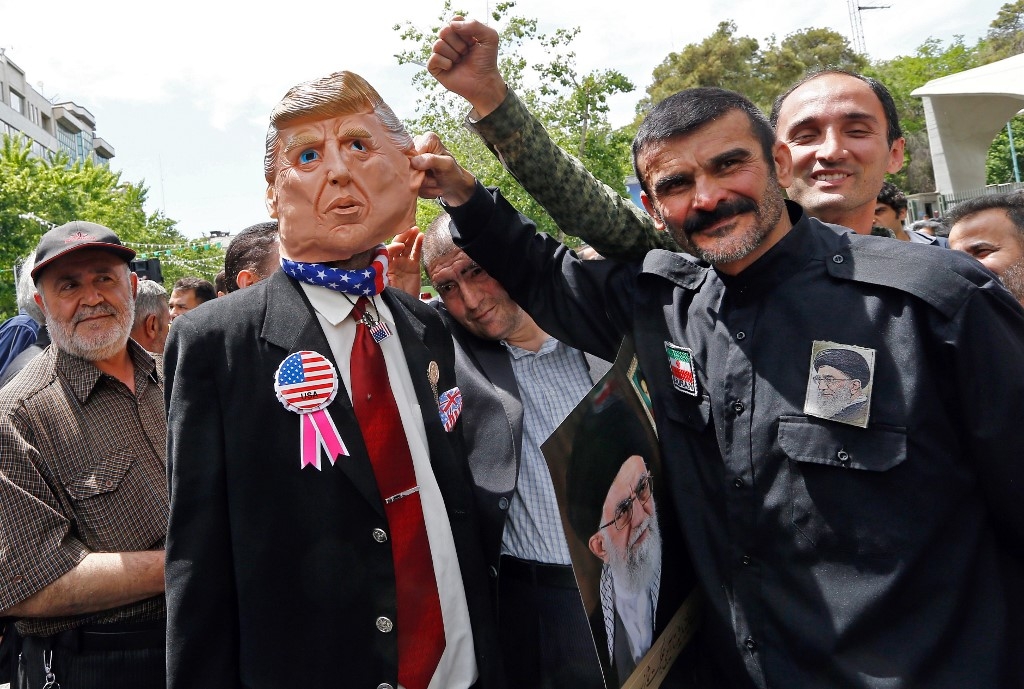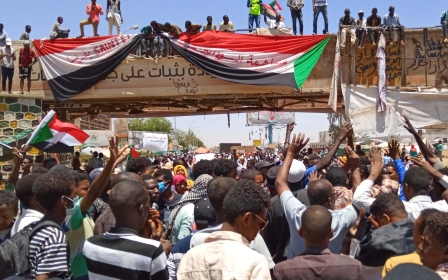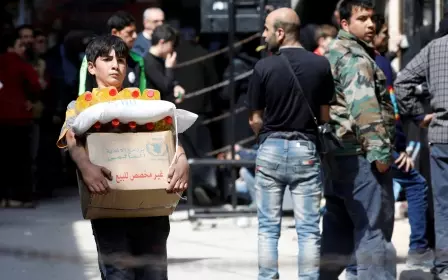Arabic press review: Iranians stockpile food over fears of war with US

Tunisian government hosts interfaith iftar in a synagogue
Members of Tunisia's Jewish, Christian and Muslim community gathered on Wednesday for an interfaith iftar gathering to mark the Muslim holy month of Ramadan at the Jewish synagogue of El Ghriba on the Tunisian island of Djerba.
The iftar gathering was organised by the Tunisian Ministry of Tourism, according to London-based newspaper Al-Quds Al-Arabi.
Tunisian Prime Minister Youssef Chahed joined some 300 members of Tunisia's different religious communities in the fast-breaking banquet, including the residents of the island and visitors of the synagogue.
"This is the Tunisia that we want," Chahed said in an interview. "The Tunisian constitution guarantees the freedom of belief, and we want to give a message of peace from the island of Djerba, which is a unique experience of coexistence of its kind."
New MEE newsletter: Jerusalem Dispatch
Sign up to get the latest insights and analysis on Israel-Palestine, alongside Turkey Unpacked and other MEE newsletters
The iftar gathering was prepared by a number of Jewish chefs who served many of the popular Tunisian dishes that Muslims eat during Ramadan.
Iranians stockpile food over fears of war with US
Iranians have been stockpiling food as fears mount over a potential war between the United States and Iran, according to Saudi newspaper Asharq Al-Awsat.
Residents and shop owners said that fears of potential difficulties in getting products have prompted some Iranians to store rice, canned goods and cleaning products, the newspaper wrote.
In response, an advertisement aired on Iranian state TV in an attempt to dissuage citizens from succumbing to the panic and stockpiling goods.
A legal adviser to an Iranian firm, Namet Abdullahzadeh, told Asharq Al-Awsat that the possibility of the outbreak of war has now become the most discussed issue in Iran.
“Apart from the deterioration of the Iranian economy, I think the most severe impact [of the confrontation with the United States] is the psychological state of ordinary Iranians, as they are suffering a lot of tension," Abdullahzadeh said.
Corruption raises unemployment rates in Iraq
Iraq's Labour Ministry said that a large number of foreign employees and corruption in government and its public institutions has led to the country's high unemployment rate, London-based newspaper Al-Araby Al-Jadeed reported.
Iraqi MPs estimated that there are more than one million foreign employees in the country. In contrast, the head of the Federation of Trade Unions Walid Nema confirmed that there are only about 600,000 employees in Iraq, but said that "foreign employees in Iraq have contributed to the deterioration of the Iraqi labour market and led to low salaries."
According to official reports, Iraq has been suffering from high unemployment rates ever since the US occupation in 2003. The unemployment rate is currently about 22 percent, while MPs confirmed that it reaches about 40 percent in some cities, according to Al-Araby Al-Jadeed.
* Arabic press review is a digest of reports that are not independently verified as accurate by Middle East Eye.
Middle East Eye delivers independent and unrivalled coverage and analysis of the Middle East, North Africa and beyond. To learn more about republishing this content and the associated fees, please fill out this form. More about MEE can be found here.




